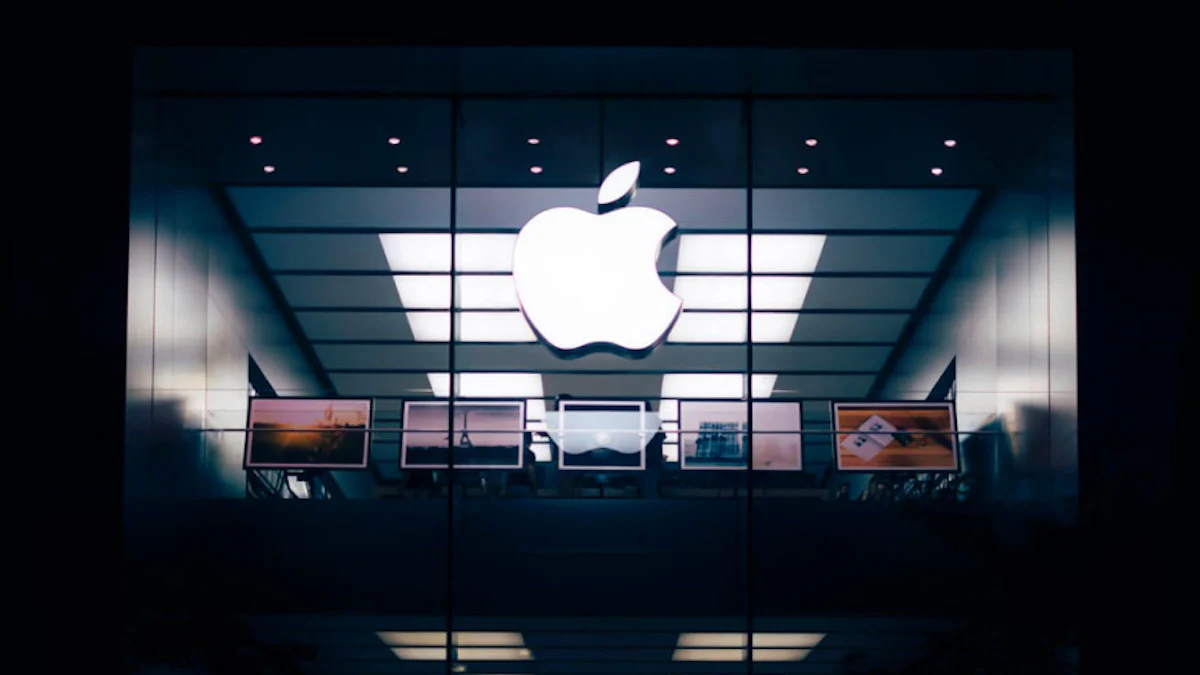- Explore
- Blog
- Strategic Moves in Apple's iPad Supply Chain
Strategic Moves in Apple's iPad Supply Chain


Apple holds a significant position in the tech industry, driven by its innovative products and strategic operations. The iPad supply chain plays a crucial role in this success. Apple manages its supply chain with precision, ensuring efficiency and sustainability. The supply chain management strategy focuses on reducing carbon emissions and promoting energy-efficient manufacturing processes. Jonny Evans highlights Apple's influence on global markets, disrupting traditional models and creating economic growth. The iPad supply chain, particularly, showcases Apple's ability to adapt and innovate. Peicheng's production manager, Jerry Chi, who worked at Apple for 14 years, emphasizes the impact of these strategies on product quality.
Overview of Apple's Supply Chain Strategy
Core Principles of Apple's Supply Chain
Efficiency and Cost Management
Apple's supply chain prioritizes efficiency and cost management. The company employs advanced logistics to streamline operations. This approach reduces unnecessary expenses and maximizes productivity. Apple maintains a tight control over inventory levels. This practice minimizes waste and ensures timely product delivery. The supply chain's efficiency contributes significantly to Apple's profitability.
Innovation and Technology Integration
Innovation forms a cornerstone of Apple's supply chain strategy. The company integrates cutting-edge technology into its processes. This integration enhances production capabilities and product quality. Apple invests in research and development to stay ahead in the market. Technological advancements allow Apple to innovate continuously. The supply chain benefits from these innovations, leading to superior products.
Key Partnerships and Collaborations
Supplier Relationships
Apple fosters strong relationships with its suppliers. The company collaborates closely with partners to ensure high standards. Suppliers adhere to strict environmental and ethical guidelines. Apple supports its suppliers in achieving sustainability goals. This collaboration results in a reliable and responsible supply chain. Apple's influence extends to improving industry practices through these partnerships.
Logistics and Distribution Networks
Apple's logistics and distribution networks are highly efficient. The company coordinates a global network of suppliers and distributors. This coordination ensures a seamless flow of materials and products. Apple invests in infrastructure to support its distribution needs. The logistics network enables rapid response to market demands. This agility strengthens Apple's position in the competitive tech industry.
Specific Strategies in the iPad Supply Chain

Manufacturing and Production Innovations
Use of Advanced Manufacturing Techniques
Apple employs advanced manufacturing techniques in the iPad supply chain. These techniques enhance production efficiency and product quality. The company integrates automation and precision engineering into its processes. This integration reduces production time and minimizes errors. Apple maintains a competitive edge through continuous innovation. The use of advanced techniques supports Apple's sustainability goals. Energy-efficient processes reduce carbon emissions and conserve resources.
Quality Control and Assurance
Quality control stands as a pillar in Apple's iPad supply chain strategy. Apple implements strict quality standards across all production stages. The company collaborates with suppliers to ensure adherence to these standards. Suppliers follow rigorous testing protocols to maintain product quality. Apple's influence extends to improving industry practices through these collaborations. The focus on quality assurance results in reliable and high-performing products.
Inventory and Demand Management
Forecasting and Planning
Apple excels in inventory and demand management within the iPad supply chain. The company uses sophisticated forecasting tools to predict market trends. Accurate forecasts enable efficient inventory planning and resource allocation. Apple minimizes excess inventory and reduces waste through precise planning. This approach contributes to cost savings and environmental sustainability. The iPad supply chain benefits from Apple's strategic planning capabilities.
Flexibility and Responsiveness
Flexibility and responsiveness characterize Apple's iPad supply chain. The company adapts quickly to changing market demands and conditions. A global network of suppliers and distributors supports this adaptability. Apple invests in infrastructure to enhance supply chain responsiveness. Rapid response to market changes strengthens Apple's competitive position. The iPad supply chain showcases Apple's ability to innovate and adapt.
Challenges and Future Prospects

Current Challenges in the Supply Chain
Global Supply Chain Disruptions
Apple Inc.’s supply chain faces significant challenges due to global SCM disruptions. Natural disasters like Hurricane Sandy have highlighted vulnerabilities in supply chains worldwide. Apple's global SCM strategy must adapt to these unpredictable events. The company has implemented measures to mitigate operational risk. Diversification of suppliers and production locations is a key strategy. Apple aims to reduce reliance on any single region to minimize strategic risk.
Environmental and Sustainability Concerns
Apple's commitment to sustainability presents both challenges and opportunities. The company strives to reduce its carbon footprint and promote ethical practices. Suppliers must adhere to strict environmental standards. Apple's efforts include reducing waste and conserving resources. The focus on sustainability aligns with global SCM trends. Apple's initiatives set new standards for responsible business practices.
Future Trends and Opportunities
Technological Advancements
Technological advancements offer new opportunities for Apple's supply chain. The integration of digital tools enhances efficiency and transparency. JavaScript and other technologies improve data analysis capabilities. Apple's global SCM strategy leverages these advancements for better decision-making. Automation and AI play crucial roles in streamlining operations. These technologies enable Apple to maintain a competitive edge.
Expansion into New Markets
Apple's expansion into new markets presents growth opportunities. The company's global SCM strategy supports this expansion. Apple must find new suppliers to meet increasing demand. The search for reliable partners is crucial for success. Apple's influence drives economic growth in regions where it operates. Collaboration with local suppliers strengthens Apple's market position.
How iPad Supply Chian affect Peicheng
Product Design
iPad's Aesthetic Changed Peicheng
Apple's iPad supply chain has significantly influenced Peicheng's product design. The sleek and modern aesthetic of the iPad set new standards in the industry. Peicheng adopted these design principles to enhance its own products. The focus on minimalism and functionality became a priority. Jerry Chi, Peicheng's production manager, emphasized the importance of these changes. The influence of Apple's design philosophy led to a transformation in Peicheng's approach.
Product Quality Control
Peicheng Manufacturing Standard
The iPad supply chain introduced rigorous quality control measures. Peicheng implemented these standards to improve product reliability. Jerry Chi utilized his experience from Apple to establish robust systems. The manufacturing processes now include advanced testing protocols. These protocols ensure high-quality outputs and minimize defects. Peicheng's commitment to excellence mirrors Apple's dedication to quality.
The display of innovation within Apple's supply chain inspired Peicheng. The integration of technology like Ghostery or NoScript enhanced security features. Peicheng's manufacturing practices evolved through this influence. The change in standards positioned Peicheng as a leader in quality. The impact of Apple's strategies continues to drive improvements in Peicheng's operations.
Apple's strategic moves in the iPad supply chain have reshaped global markets. The company maintains a robust influence over its suppliers, driving innovation and setting new standards. Apple's focus on efficiency and sustainability strengthens its market position. The supply chain's complexity ensures continued success and impact. Peicheng's production manager, Jerry Chi, leverages his 14 years at Apple to enhance Peicheng's manufacturing quality. Apple's future supply chain strategy will likely continue to lead in technological advancements and market expansion. Additional information from Adestra highlights these ongoing innovations.














